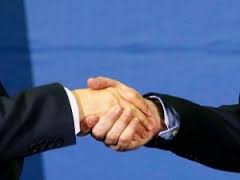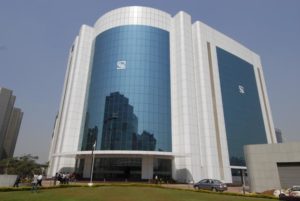
India will undertake a “stock-taking exercise” for a free trade agreement with the EU later this month, after a gap of three years, and pitch for greater market access in services once the stage is set for further negotiations, a senior commerce ministry official said.
Before engaging in serious formal talks on the EU-India Bilateral Trade and Investment Agreement (BTIA), a “stock-taking exercise” will be undertaken, as some contours of the earlier negotiations have to be altered, keeping in view the changes that have taken place since the talks were stuck in 2013, Arvind Mehta, additional secretary in the commerce ministry, told FE.
For instance, India has further liberalised many sectors for foreign investments, including some of the areas where the EU had interests, over the past three years. For instance, the FDI cap in insurance has been raised to 49% from 26% and 100% FDI is allowed in telecoms. In private sector banking, full fungibility of foreign investment is now permitted and accordingly FIIs/FPIs/QFIs can now invest up to a sectoral limit of 74%, with certain conditions.
While India feels the flexibilities shown by it in further opening up to foreign investments should be considered positively by the EU, it also expects some reciprocal measures by the 28-member bloc to address its concerns, especially on data privacy and market access in the services sector. However, there will be no binding commitments until India’s core concerns are addressed suitably, Mehta said. The BTIA negotiations cover boosting goods and services trade as well as investment.
India seeks a data secure status because the high compliance cost with EU’s data protection laws will hit small and medium enterprises (SMEs) of India and make them un-competitive.
Mehta said India will be betting for a trade facilitation agreement (TFA) in services at the World Trade Organisation — similar to the TFA in goods — that would focus on liberalised visa regime, long term visas for business community and freer movement of professionals for the greater benefit of both India and the world. India will pursue it vigorously in negotiations for the BTIA as well as Regional Comprehensive Economic Partnership. RCEP is a proposed FTA between the Asean members and the six states with which it has forged FTAs, including India.
India is keen on services, as they account for over a half of its GDP. The EU is India’s largest trade partner, accounting for close to 15% of trade in both goods and services. It is a major market for Indian textiles, garments, pharmaceuticals, gems and jewellery and IT. The EU is also the largest source of FDI inflows to India, accounting for over one-fourth of the total. However, India ranks only ninth among the EU’s top trade partners, making up for just about 2% of its total merchandise goods in 2014.
BTIA talks were to be revived last year, but the EU’s surprise ban on 700 products of GVK shocked India, which then called off the negotiations. Prior to that, the negotiations centred around India’s demand for.
The EU is interested in further liberalisation of FDI in multi-brand retail and insurance, and closed sectors like accountancy and legal services. The underutilised private banking space in India is another draw. India’s intellectual property regime (IPR), which is unlikely to allow ever-greening of patents, remains a concern for European pharma majors. Moreover, the EU has been seeking a cut in the high import duties on assembled vehicles and wines and spirits. In case of assembled vehicles, the import duties remain in the range of 60-75%.






